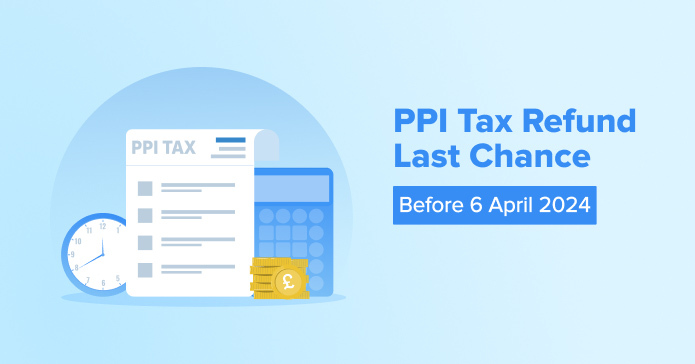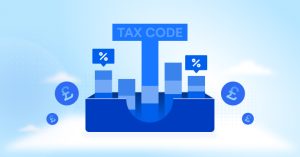Navigating the complexities of tax can be like charting a course through a storm—confusing, daunting, and potentially costly if a misstep occurs. For residents in the UK who are reliant on personal pension income, the term PPI tax refund might just be the beacon of hope on the tax horizon for the last time in 2024.
Whether you are an employee, business owner, employer, or simply a diligent taxpayer, understanding PPI and the potential for a refund is vital for ensuring you're not paying more than your fair share.
In this post, we'll chart the PPI tax refund process, illuminate the eligibility criteria, and provide you with actionable insights to reclaim overpaid tax. Join us as we decode the tax refund mechanism and show you how to secure the financial compensation you are rightly due.
PPI Tax Refund Explained
2024 is your last chance to make a PPI claim as you are allowed to make claims 4 years back, you can still claim a PPI refund by the 6th of April 2024, after that HMRC will keep whatever money you have with them.
The PPI tax refund process allows individuals in the UK to claim back potentially over-taxed personal pension income. If you believe your pension income tax has been calculated at an incorrect rate, you can leverage Form R40 PPI to initiate the tax refund procedure. This claim can translate into significant financial recovery, especially if you were unaware of the over-taxation of your pension funds.
Understanding the PPI Form and Its Significance
HM Revenue and Customs (HMRC) administers the PPI tax refund scheme through the R24 form. It's crucial to understand the importance of this form as it is your primary tool to challenge an alleged over-taxation of your pension income. Once you've identified the discrepancy, being adept at completing and submitting the R40 PPI form is the next step toward securing your refund.
Who Is Eligible for a PPI Tax Refund?
Eligibility for a PPI tax refund hinges on the application of the wrong rate for the pension income tax. If you think that your tax has been calculated unfairly on your personal pension, then you likely meet the criteria for applying for a refund.
PPI can be made as compensation with an interest rate of 8% for the time that you were overtaxed. This 8%, a statutory part of the tax rebate, is taxable unless your income is inside of £12,750 for the year that you were overtaxed. So if your income exceeds the personal allowance rate then the interest of this compensation is taxable.
How to claim tax back on a PPI refund?
- The first step to claiming a PPI tax refund is identifying if you are eligible for one. If you believe that your pension income has been taxed unfairly, you can submit the R 40 Form to HMRC and request a review of your tax calculations.
- Remember to fill in tax interest, tax deducted and gross amount sections (3.1, 3.2 and 3.3 respectively on the form) correctly!
- It's essential to provide as much evidence as possible to support your claim, including any relevant documents or communications from HMRC.
- HMRC will then review your claim and inform you of the outcome within 8 weeks. If successful, the amount will be refunded directly to your bank account.
Evidence Requirements by HMRC for PPI Tax Refund
R40 Claims proved to be too exposed to exploit over the years and like every other tax claim inquiry, HMRC did strengthen its grip and peeled its eyes on the PPI tax refund claims too. After some series of tax rebate scandals like claims going to an unknown third party, HMRC has changed the way it deals with the claims.
Introducing the new rules of "evidence" when making a PPI tax refund claim, HMRC is hoping to prevent tax rebate scams, which means you`ve got to be prepared before making a tax claim.
A certificate or the most recent (final) correspondence from the institution that`s made your refund.
Conclusion
As the deadline to claim a PPI tax refund approaches, it's important for individuals to educate themselves on the process and eligibility criteria. By understanding the significance of the R40 form and providing adequate evidence, taxpayers can increase their chances of successfully reclaiming overpaid tax. However, with HMRC tightening its grip on PPI tax refund claims, it's crucial to ensure that all claims are accurate and legitimate. So don't wait until the last minute, start your PPI tax refund journey now and secure the financial compensation you are entitled to. Remember, this is your last chance before 6 April 2024!
Happy reclaiming!













